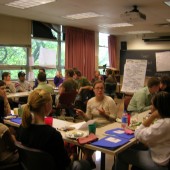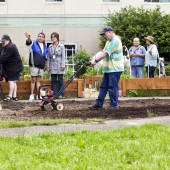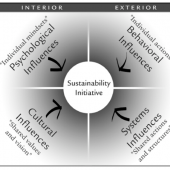
This article examines how an experiential education opportunity affected leadership development of a young adult over a five-year time period. The individual participated in a series of authentic environmental leadership activities which emphasized direct experience, peer-to-peer mentoring, and youth-adult partnerships. We illustrate how sustainability educators and planners can engage youth in meaningful leadership activities and encourage long-term leadership cultivation. Challenges to facilitating environmental youth leadership are also addressed, including relating to and providing appropriate support for adolescents and young adults.
Continue Reading
Experiential and inclusive sustainability leadership practices in learning garden programs can lead to increased community food security. This recent study shows that Oregon Food Bank’s Seed to Supper program increases food literacy, builds social capital, and creates opportunities for fostering inclusive leadership in learning garden communities. Through a mixed-methods community-based research process, the study found that learner empowerment through food literacy and sustainability leadership increased access to locally-grown foods for food insecure populations. The leadership model discussed in this paper uses the concept of the web of inclusion (Helgesen, 1990) as a framework for discussing the intricate social networks within the Seed to Supper program.
Continue Reading
Given the importance of understanding and learning to work effectively with a diversity of perspectives and values in the sustainability field, this article offers a developmental map of the worldviews of sustainability. It includes an introduction to developmental theory and research, an overview of the diversity of worldviews, how they differ and relate to one another and to sustainability practice and leadership, and how these worldviews develop over time. A developmental perspective suggests that every sustainability practitioner/educator/leader has a worldview that is made up of the beliefs that person holds and their definition for sustainability emerges out of those beliefs. Moreover, there are consistent patterns observed cross-culturally in the ways that these worldviews develop. Understanding and learning to work with the diversity of perspectives and their developmental trajectory is vitally important for sustainability education and leadership in that it helps us to design curriculum, and sustainability campaigns, policy and actions in ways that are more holistic, include a diversity of worldviews, address conflict between them and contribute to the development of the worldviews themselves.
Continue Reading